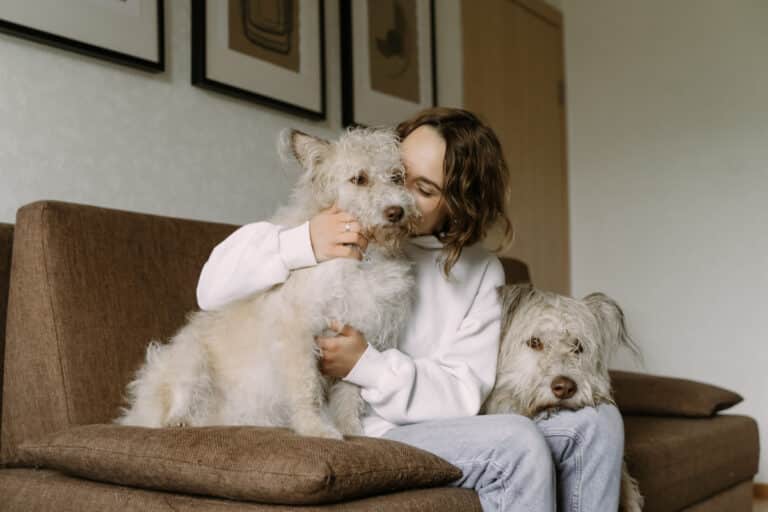Petfluencer Wander with Willow cloned her dog to keep producing content after it died
That’s it everyone: we have officially reached the end of the technocratic, self-obsessed influencer world of today. The rabbit hole of doing anything and everything for a view, like or a follow has landed us in a strange version of Pet Sematary—only this time, pets aren’t rising back from the dead because of a curse, but because their owners don’t want to let them go and lose their precious content.
You read that right, petfluencers are cloning their companions in order to keep the content ball rolling and the money flowing. ‘Zombie dogs’ are the latest must-have in the influencer starter pack, with creators cloning their star pets before their unavoidable death as a way to make sure they’ll have another identical animal available for more content.
Among the few influencers who have decided to clone their pets is Courtney Udvar-Hazy, the 29-year-old content creator behind the popular account @Wander_with_Willow, which focuses on her wolf-dog hybrid Willow.
Willow’s entire journey had been documented online, from the moment Udvar-Hazy got her as a tiny puppy to bravely trekking the wilderness on hikes with her human. In 2018, the poor pup passed away after being struck by a car. Now, you’d think that this would be the end of the road for the Instagram account, despite Willow’s nifty little online following, but you couldn’t be more wrong. With a little help from Texas-based pet cloning company and cell preserver, ViaGen Pets, Udvar-Hazy hit copy and paste on Willow.
Tens of thousands of dollars later, meet Willow’s clone, Phoenix, also a wolf-dog hybrid, aged two.
Founded in 2016, ViaGen Pets is also known for cloning Barbra Streisand’s fur baby Samantha in 2018. Its technology uses the original pet’s cells in order to make an embryo which is then transferred to a surrogate mother.
It costs a pretty penny to carry all of this out too as ViaGen Pets’ rates for animal cloning go for anything around $50,000 (£37,000) for dogs and $35,000 (£26,000) for cats, because who can say goodbye to those oh-so-precious toe beans? Even horses can be cloned, but it’ll cost you anything upwards of
You get what you pay for though as ViaGen Pets client service manager, Melain Rodriguez, explained to Input, “Someone could clone their pet and replace the original.” In fact, Rodriguez added that the company is so good at what it does that the world “may never know” whether someone has cloned their pet or not.
Despite this, it seems that influencers are more forthcoming about cloning than they are about editing body pics. @Clash_of_the_Clones and @Baxter_the_clone are some of the many who have literally followed the proverbial ‘letting the cat out the bag’ and are loud and proud on the platform about their peculiar pets.
Though the clones may be an exact DNA match to the original puppers, ViaGen Pets also noted that they can differ from their DNA donors. These clones can develop their own temperaments and personalities—evil twin takeover maybe?
Pet clones are the gift that keeps on giving too, as Udvar-Hazy shared with Input that she created an additional five clones to hand out to her friends.
For owners like Udvar-Hazy, cloning helps them to get over the grief and loss of their close furry companions. The downside detractors warn about is that having such power over life and death could simply be tech going too far, as making copies of a pet also encourages an owner’s misguided attempts at bringing them back.
The response to Udvar-Hazy’s decision to genetically duplicate her floof has not been met with resounding support at all.
Bringing pets back from the dead is actually pretty common. In a paid partnership with ViaGen Pets, the team behind @TinkerbelleTheDog—the “fabulous fluff” according to its Instagram bio, sitting on a high throne of over 500,000 followers—revealed in 2019 that the doggy’s DNA was being stored for cloning.
ViaGen Pets remains positive about the opportunities for cloning within the petfluencer industry. After many conferences speaking about the innovation, “We definitely got some clients that moved forward with preserving the cells,” Rodriguez enthusiastically shared with Input. Let sleeping dogs lie, I say.





